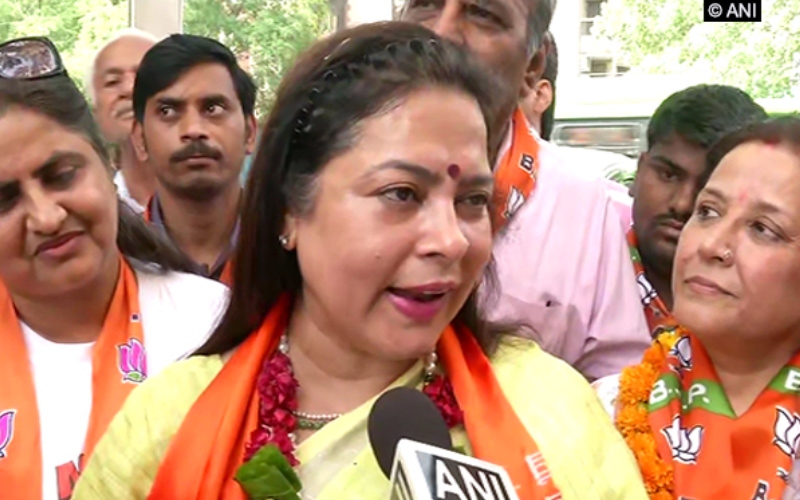New Delhi [India]: BJP MP Meenakshi Lekhi on Tuesday hit out at Congress MP Karti Chidambaram for taking potshots at the BJP over the number of its MPs in the Lok Sabha saying “303 is a mandate to allow the progress of the country and to control terrorist activities”.
Lekhi made the remarks during a discussion on ‘The Unlawful Activities (Prevention) Amendment Bill, 2019’ (UAPA) in the Lok Sabha.
Chidambaram had attacked the BJP on Monday during the debate on the Right to Information amendment Bill by referring to the 303 members that BJP has in the Lok Sabha, saying the number had many connotations.
“BJP has 303 MPs in the house and 303 has many connotations. IPC 303 refers to the death sentence. I hope the government will not use their 303 to give a death sentence to the spirit of RTI. 303 also refers to the standard issue rifle, which is used by the constables even today. The 303 rifle was used by the brutal General Dyer to commit the horrendous massacre at Jallianwala Bagh. I hope the government does not use its 303 to massacre the spirit of the RTI,” he had said towards the end of his speech.
Lekhi responded to his remarks towards the end of her speech.
“I am ending my address. I am going back to the mandate -the mandate which this government has got from the people of this country. I must express myself by saying that 303 is a mandate to control terrorist activities. 303 is a mandate to allow the progress of the country. 303 is a mandate that you can no longer lie low before the terrorists, you no longer hunt with the hound and run,” she said.
In her speech, Lekhi referred to the history of UAPA and said an amendment was brought to curtail freedom of expression when Jawaharlal Nehru was the Prime Minister.
“If you look at freedom of expression which was a fundamental right and continues to be that, Babasaheb Ambedkar rightly pointed out that freedom of expression and fundamental rights were the heart and soul of the Constitution,” the BJP leader said.
“The very first amendment under the aegis of Pandit Jawaharlal Nehru was to curtail this freedom of expression. This curtailment happened by changing the law to say the freedom of expression cannot be unlimited but it has to be curtailed for reasonable restrictions and public order. Two conditions were added – reasonable restrictions and public order. Then came the time of the16th amendment which happened in 1963. Amendment of 1963 was brought in post-Sino-Indian war,” Lekhi remarked.
She also linked the history of UAPA to DMK saying it was brought in after the party had raised secessionist demands.
Lekhi said that after the Sino-India war, DMK wanted to “cause cessation and be away from India” and to deal with those secessionist forces and some changes were made.
As she was interrupted by DMK members, Lekhi said: “This is historically correct”.
“To protect the sovereignty and integrity of India, this particular 1967 Act was brought in. Post-1967, 2004, 2013 and 2008, many amendments have happened,” she said.

